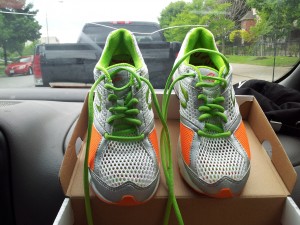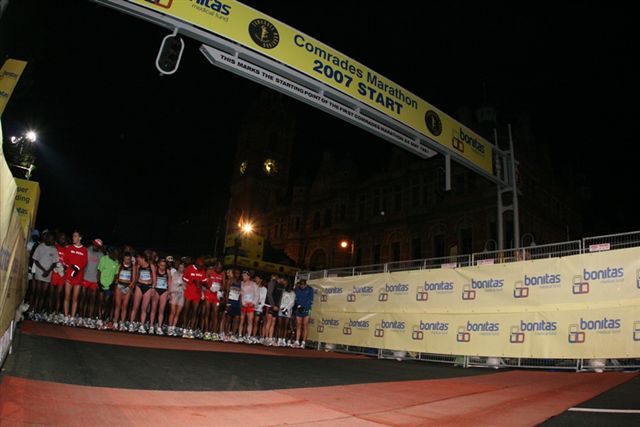Yesterday, I got a new pair of running shoes. In a dramatic departure to the norm, I did not get New Balance – the shoes I have insisted on running in right from the start. Instead, I got Newtons, which are designed to help runners improve their form. These shoes are going to change the way I run. My heel-striking days will be over, and I will become very aware of my calf muscles.
I will have to break the shoes in gradually, and as I sit here on a Sunday morning – the day of my long run – I have to resist the temptation to put the shoes on and take them for a 10K run.
I developed an interest in running long before I actually took it up. That is to say, I always enjoyed watching it, even if I was too lazy to get off my butt and do it. As a teenager, a prominent day in my annual calendar was the annual Comrades Marathon, an 89km run between the South African cities of Durban and Pietermaritzburg.
On Comrades Day, my dad and I would be up drinking coffee by five in the morning. We would turn on the TV to watch the pre-race goings on, wondering what the start-line energy must be like for such a huge event. Then we would watch the start, and spend the morning trying to predict how long it would take Bruce Fordyce to win. That he would win was never in question. He won the Comrades a record nine times. Eight of the wins were in consecutive years.
While Dad and I were glued to the TV, Mom would be making a huge batch of cookies in the kitchen, relishing the opportunity to bake without us hanging around asking why there weren’t any cookies yet.
After the top ten men and women crossed the finish line, Dad and I would drift away from the TV and do something else, but we would always return at about five in the evening, to watch the final half-hour of the race. By that time, hundreds of runners would still be out on the course, trying desperately to make it to the finish line before the twelve-hour cutoff. When the finishing siren went off, we would always feel the agony of the runners who had made it into the stadium, but just couldn’t get to the finish line. So near and yet so far. For some of them, a split second was all that stood between them and a medal.
I miss those days, when the Comrades was as much a day for me and my dad as it was a day for the runners to give themselves the ultimate test. Now, my Comrades experience is limited to what I can see on the Internet, which is not the same as curling up in front of the TV. My dad, who died seven years ago, is not around for me to chat to about the runners or whether the number of participants has perhaps become too large. There is no aroma of freshly baked cookies coming from the kitchen.
One thing hasn’t changed, though. As I am scouring the Internet for Comrades-related news, my dad is with me.
Just as he always is when I go running myself.
(Photo credit: Kirsten Doyle)











